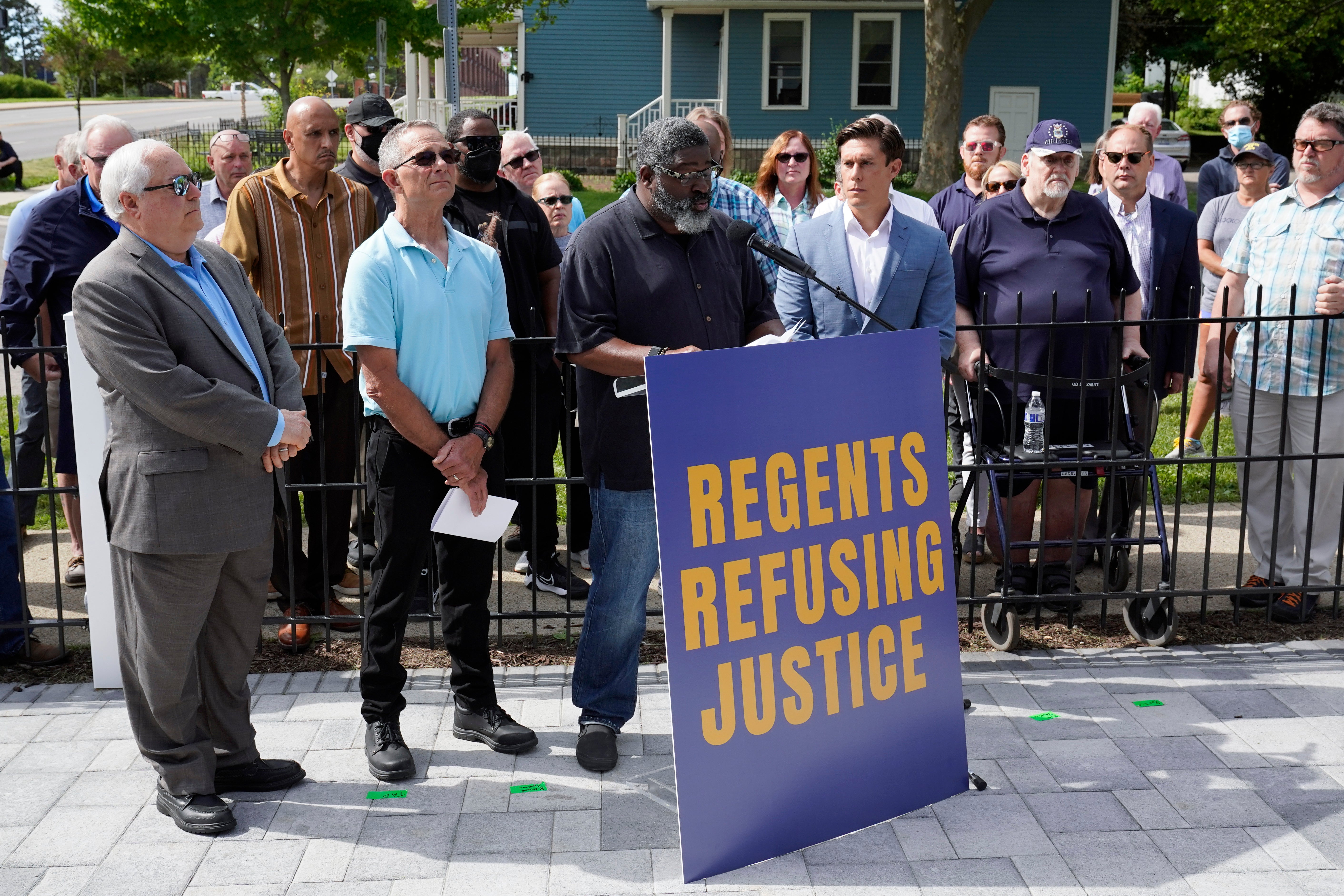Opportunities were missed to stop sports doctor Anderson
Suspicions that a University of Michigan sports doctor was committing sexual assault went back decades, long before a $490 million settlement with victims

Your support helps us to tell the story
From reproductive rights to climate change to Big Tech, The Independent is on the ground when the story is developing. Whether it's investigating the financials of Elon Musk's pro-Trump PAC or producing our latest documentary, 'The A Word', which shines a light on the American women fighting for reproductive rights, we know how important it is to parse out the facts from the messaging.
At such a critical moment in US history, we need reporters on the ground. Your donation allows us to keep sending journalists to speak to both sides of the story.
The Independent is trusted by Americans across the entire political spectrum. And unlike many other quality news outlets, we choose not to lock Americans out of our reporting and analysis with paywalls. We believe quality journalism should be available to everyone, paid for by those who can afford it.
Your support makes all the difference.Suspicions that a University of Michigan sports doctor was committing sexual assault went back decades, long before a $490 million settlement this week with victims, but no one stepped forward to ensure that Robert Anderson would be kicked off campus.
The many missed opportunities were described in detail last May when a law firm hired by the university released its findings about Anderson, who died in 2008 after working at U-M for nearly 40 years.
“There was an undercurrent of rumors, jokes, innuendo and expressions of concern about Dr. Anderson throughout his career at the university,” the WilmerHale report said. “University personnel failed to appreciate the significance of what they heard. We found no evidence that anyone inquired into his conduct or referred him for investigation.”
Yet WilmerHale also found critical events that could have made a difference, according to the report:
A WRESTLER COMPLAINS
In 1975, Tad DeLuca wrote a 10-page letter to his coach about a range of issues, including Anderson's insistence that athletes “drop your drawers” for a rectal exam, no matter the reason for a visit. No action was taken. The coach, Bill Johannesen, said he couldn't recall any complaints about Anderson. In 2018, 43 years later, DeLuca wrote to athletic director Warde Manuel about Anderson, a letter that led to a police investigation.
ADMINISTRATOR GETS ANGRY
Thomas Easthope, who supervised the University Health Service, heard complaints that Anderson was “fooling around with boys,” a reference to him taking advantage of gay students, in the late 1970s and early 1980s. Easthope claimed he fired Anderson — “Bob, you're outta here” — but Anderson merely stopped being health service director. By 1981, he had moved to the athletic department. Before he died in 2021, Easthope acknowledged that he didn’t tell local authorities about Anderson. “We live in a different time, and it’s not like that today," he said.
DID BO KNOW?
Among the most troubling disclosures: Some football players said they told legendary coach Bo Schembechler about Anderson molesting them in the 1970s. Schembechler, who died in 2006, told one to “toughen up.” The disclosure has caused division in Schembechler's family, with some saying he never would have flippantly dismissed complaints. A son, Matt Schembechler, said he was an Anderson victim and told his dad.
Athletic director Don Canham was informed about Anderson, too, but took no action, athletes said. Canham died in 2005.
WilmerHale found at least 20 occasions when a student, athlete or other individual spoke with university staff about Anderson.
The failure to intervene allowed him “countless occasions” to harass, abuse and assault patients during his 37-year career, the report said.
Anderson's victims included pilots and others in the aviation field who needed physicals for employment. The Federal Aviation Administration had certified him as a medical examiner in southeastern Michigan
“He continued to provide medical services to student athletes and other patients — and to engage in sexual misconduct with large numbers of them — for the rest of his career,” the report said.
___
Follow Ed White at http://twitter.com/edwritez